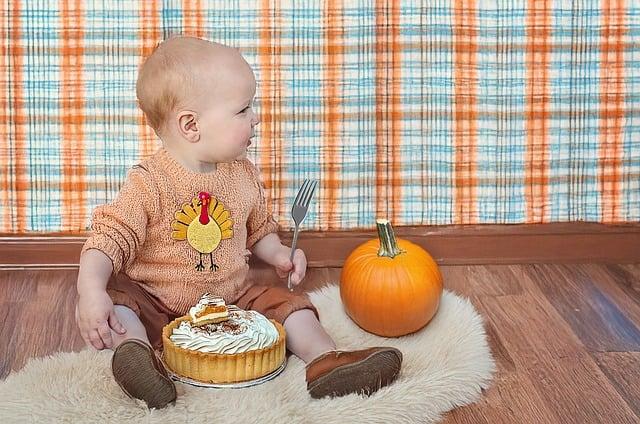Imagine a family bustling with energy—kids laughing, toys scattered, and a warm dinner waiting. In the midst of this joyful chaos, a gentle Golden Retriever named Max lies peacefully, tail wagging. Known for their friendly demeanor and adaptability, Golden Retrievers are often hailed as the easiest family dogs. They thrive on companionship, are eager to please, and are incredibly patient with children. Choosing a Golden means welcoming a loyal friend who will not only fit seamlessly into your family but also enrich your lives with love and laughter.
Contents
- Understanding the Characteristics of an Ideal Family Dog
- Top Breeds Known for Their Gentle Temperament
- Training and Socialization Tips for a Harmonious Home
- Choosing the Right Family Dog for Your Lifestyle and Needs
- Q&A
Understanding the Characteristics of an Ideal Family Dog
When considering the perfect canine companion for your family, it’s essential to focus on specific traits that contribute to a harmonious household. An ideal family dog should possess a **gentle temperament**, making them approachable and friendly, especially around children. This characteristic ensures that interactions are safe and enjoyable, fostering a bond between the dog and family members. Look for breeds known for their patience and affection, as these qualities can significantly enhance the family dynamic.
Another critical aspect is **trainability**. A dog that is eager to learn and respond well to commands can make life easier for busy families. This trait not only helps in establishing good behavior but also strengthens the relationship between the dog and its owners. Breeds that are intelligent and willing to please often excel in training, making them suitable for families who may not have extensive experience with dogs. Consider breeds that are known for their quick learning abilities and adaptability to various environments.
Moreover, an ideal family dog should have a **playful nature**. Dogs that enjoy engaging in activities and games can keep children entertained and active, promoting a healthy lifestyle for the entire family. Look for breeds that thrive on interaction and enjoy outdoor adventures, as this can lead to countless joyful moments together. A playful dog can also help teach children about responsibility and empathy, as they learn to care for and engage with their furry friend.
Lastly, consider the dog’s **energy level**. A family dog should match the lifestyle of the household. For families with young children or busy schedules, a dog with a moderate energy level is often the best fit. This balance allows for playful interactions without overwhelming the family. Breeds that enjoy both playtime and relaxation can adapt well to various family routines, ensuring that everyone, including the dog, feels comfortable and happy in their environment.
Top Breeds Known for Their Gentle Temperament
When it comes to choosing a family dog, temperament is a crucial factor to consider. Some breeds are particularly renowned for their gentle and friendly nature, making them ideal companions for families with children. These dogs not only exhibit patience and affection but also adapt well to the hustle and bustle of family life. Here are some breeds that consistently stand out for their gentle demeanor:
- Labrador Retriever: Known for their friendly disposition, Labradors are playful, loyal, and incredibly patient. They thrive on human interaction and are often considered one of the best family dogs due to their loving nature.
- Golden Retriever: With their gentle temperament and eagerness to please, Golden Retrievers are excellent with children. Their intelligence and trainability make them a favorite among families looking for a reliable and affectionate pet.
- Bichon Frise: This small breed is known for its cheerful personality and playful spirit. Bichon Frises are gentle and adaptable, making them perfect for families who want a dog that can easily fit into various living situations.
- Beagle: Beagles are friendly, curious, and great with kids. Their gentle nature and playful attitude make them wonderful companions for families, ensuring that there’s never a dull moment.
In addition to their friendly personalities, these breeds often exhibit a high level of patience, which is essential when interacting with young children. Their ability to remain calm in various situations allows families to enjoy peace of mind, knowing that their furry friend will handle the chaos of family life with grace. Moreover, these dogs are typically eager to engage in playtime, making them perfect partners for outdoor activities and family adventures.
Choosing a dog with a gentle temperament not only enhances the family dynamic but also fosters a nurturing environment for children to grow up in. These breeds are known for their ability to form strong bonds with family members, providing companionship and unconditional love. By selecting a dog that embodies these qualities, families can ensure a harmonious relationship that enriches their lives.
Ultimately, the right breed can make all the difference in creating a loving and supportive family atmosphere. By considering the gentle nature of these breeds, families can find a loyal companion that will not only fit seamlessly into their lives but also become an integral part of their family story. Investing in a dog known for its gentle temperament is a decision that will yield countless joyful moments and cherished memories for years to come.
Training and Socialization Tips for a Harmonious Home
Creating a harmonious home with your new family dog begins with effective training and socialization. Start by establishing a consistent routine that includes regular feeding times, walks, and play sessions. This predictability helps your dog feel secure and understand what is expected of them. Incorporate basic commands such as sit, stay, and come into your daily interactions. Positive reinforcement, like treats and praise, will encourage your dog to learn and obey these commands eagerly.
Socialization is equally important for fostering a well-adjusted pet. Introduce your dog to various environments, people, and other animals gradually. This exposure will help them develop confidence and reduce anxiety in new situations. Consider the following strategies for effective socialization:
- Arrange playdates with friendly dogs.
- Visit dog parks during off-peak hours.
- Take your dog on outings to pet-friendly stores or cafes.
- Enroll in puppy classes or obedience training.
Consistency is key when it comes to training and socialization. Ensure that all family members are on the same page regarding commands and rules. This unified approach prevents confusion for your dog and reinforces their learning. Additionally, be patient and understanding; every dog learns at their own pace. Celebrate small victories to keep the training process enjoyable for both you and your pet.
Lastly, remember that training and socialization are ongoing processes. Continue to engage your dog with new experiences and challenges throughout their life. Regularly revisiting training exercises will help maintain their skills and strengthen your bond. By investing time and effort into these areas, you’ll cultivate a loving and well-behaved companion that enhances your family dynamic.
Choosing the Right Family Dog for Your Lifestyle and Needs
When selecting a family dog, it’s essential to consider how the breed aligns with your family’s lifestyle and needs. Different breeds come with varying energy levels, temperaments, and grooming requirements, which can significantly impact your day-to-day life. For families with young children, a dog that is gentle and tolerant is crucial, while active families may prefer a breed that can keep up with their energetic routines.
**Size matters** when it comes to choosing a family dog. Larger breeds may require more space and exercise, while smaller breeds can be more adaptable to apartment living. However, size isn’t the only factor; consider the dog’s energy level and how it fits into your family’s daily activities. Breeds like the **Labrador Retriever** or **Golden Retriever** are known for their friendly nature and adaptability, making them excellent choices for families who enjoy outdoor activities.
Another important aspect is the dog’s grooming needs. Some breeds require regular grooming and maintenance, which can be time-consuming and costly. If your family has a busy schedule, opting for a breed with low grooming requirements, such as the **Beagle** or **Boxer**, can save you time and effort. Additionally, these breeds are generally known for their friendly disposition, making them great companions for children.
Lastly, consider the dog’s training needs and intelligence. Breeds that are easier to train can help foster a positive relationship between your family and your new pet. **Poodles**, for example, are not only intelligent but also versatile, coming in various sizes to suit different living situations. By choosing a breed that aligns with your family’s lifestyle, you’ll ensure a harmonious and fulfilling relationship with your new furry friend.
Q&A
-
What breeds are considered the easiest family dogs?
Some of the easiest family dogs include:
- Labrador Retriever – Known for their friendly nature and adaptability.
- Golden Retriever - Gentle, intelligent, and great with children.
- Beagle – Friendly, curious, and easy to train.
- Bulldog – Calm and affectionate, making them great companions.
-
What makes a dog easy to train for families?
Dogs that are easy to train typically possess:
- Intelligence - Quick learners who can grasp commands easily.
- Willingness to please – Dogs that enjoy making their owners happy.
- Calm temperament – Less likely to be distracted during training sessions.
-
How important is a dog’s temperament for family life?
A dog’s temperament is crucial for family life because:
- Compatibility – A friendly and sociable dog is more likely to get along with family members.
- Safety - Calm and gentle dogs are safer around children.
- Stress reduction – A well-tempered dog can create a more harmonious home environment.
-
What should families consider before choosing a dog?
Families should consider:
- Activity level – Choose a breed that matches your family’s lifestyle.
- Space – Ensure you have enough room for the dog to thrive.
- Time commitment – Be prepared for daily exercise, training, and socialization.
choosing the right family dog can transform your home into a harmonious haven. By considering breeds known for their gentle temperament and adaptability, you ensure a loving companion that enriches your family’s life for years to come.

大家好,我是彼得潘,專業的手法身體治療師。我喜歡探索和研究各種主題,並透過與人工智慧的合作分享專業、實用、有趣的文章。我們定期進行人工審核,以確保內容的準確性。如果您發現文章中有任何不準確的地方,請隨時與我們聯繫,我們會及時糾正。您可以透過 [email protected] 與我們聯繫。



